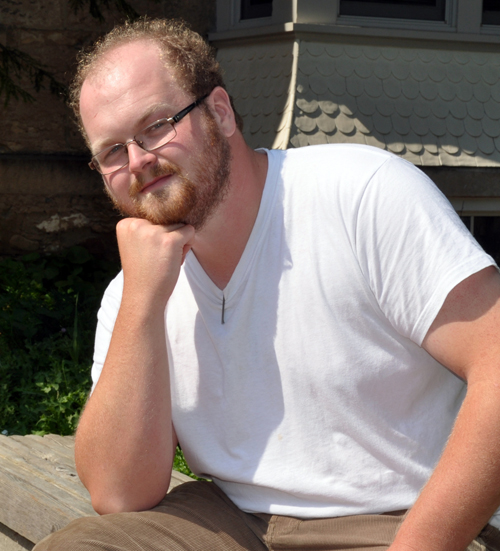
Do you remember what you did yesterday? What about last week, last month or last year? And how can you be sure your memories are accurate? For his master’s thesis in philosophy, titled “The Problematic Presence of Memory,” Chris Jordan-Stevens looked at the unreliable nature of memory.
“The problematic presence of memory is that in our memories we see something that no longer exists,” he says. “It’s an old metaphysical problem: in our memories we see the past, but the past is no longer there.”
If the past no longer exists, does that mean our memories aren’t real? Not exactly, he says. Our memories are real, but they’re our mind’s interpretation of what happened, not what actually happened. This “semblance of the past” is problematic, he says, because “in the present, we see the non-present or the absent.”
If one person, for example, claims there was a tree growing in front of a house, and the other claims there was no tree, neither of them can prove they’re right using only their memory. Even if they return to the house and find the tree is gone, the tree may have been cut down or it may never have been there in the first place. Without a photo, says Jordan-Stevens, “there’s no possible way for the original experience to repeat itself. There’s no absolute verification of anything. Memory is essentially questionable; it is never certain.”
Our perceptions of time and memory are closely related, he says. Each memory is linked to a time period in our lives and fits within a chronological context. We know that our fifth birthday party, for example, came before our sixth. Looking back on our lives is like reading our own biography filled with chapters based on our experiences. “The co-presence of the past with the present is a condition for being human,” he says. “Part of being human is having memories.”
Some memories are more vivid than others, he adds, particularly those that produce strong emotions. If we want to remember these memories, we choose to recall them repeatedly. “I think the more you remember something, the more concrete that memory becomes in your life.” The memory of the last time you spent with a loved one, for example, is more meaningful and emotional than the memory of what you had for breakfast today and is more likely to become a strong memory. These types of memories can also trigger feelings of nostalgia as we remember what we have lost and can never regain.
Although the past is gone, we can relive it through our memories, which are often triggered by certain sights, sounds and smells. Our sense of smell is particularly effective at creating memories. “A couple days ago, I was at a house and I smelled playdough – not the philosopher but the malleable stuff – and it reminded me of my senior kindergarten room,” says Jordan-Stevens. We usually don’t need to make a conscious effort to remember things, he adds, because our mind recalls memories without our thinking about them.
Memory can also be selective. “There’s always the question of whether or not we add what we want to add to a memory,” he says, or if the mind chooses not to remember certain things. “A memory is proof that it’s happened to us, so if we forget, we can say it didn’t really happen to us.” We may not want to admit that certain things have happened to us, he adds, but our current state of mind determines what we remember and how we remember it. Time also affects the way we interpret a memory. Recalling an incident that was embarrassing at the time might make us laugh about it later. “Memories are essential to how we come to understand ourselves.”